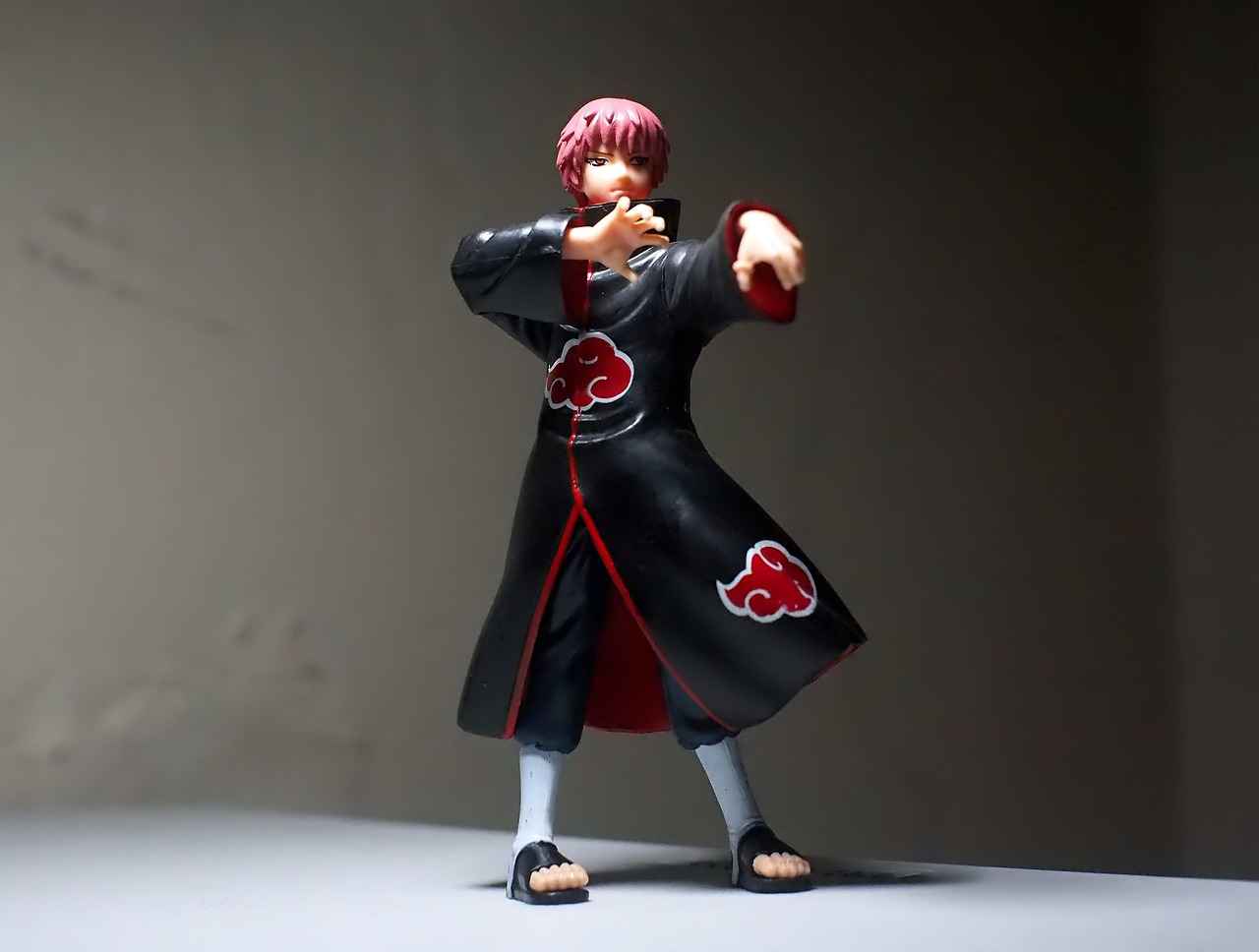This article delves into the complex character of Madara Uchiha, exploring his motivations, actions, and the impact he had on the Naruto series as one of the most formidable villains.
The Origins of Madara Uchiha
Madara’s backstory is crucial to understanding his character. Born into the Uchiha clan, his early life was marked by conflict and ambition. The constant battles between clans and his desire for recognition fueled his ambition, shaping a vision for a world where he could control the chaos and suffering around him.
Madara’s Philosophy and Ideology
Central to Madara’s character is his philosophy on peace and control. He believed that true peace could only be achieved through absolute power, which led him to pursue the ultimate weapon, the Infinite Tsukuyomi. His ideology was rooted in a desire to end the cycle of pain and conflict, albeit through domination.
The Formation of the Akatsuki
Madara played a pivotal role in the creation of the Akatsuki. This organization was instrumental in his plans, gathering powerful rogue ninjas to help him achieve his vision of a world under his control. By manipulating events from the shadows, he aimed to orchestrate a grand scheme that would reshape the ninja world.
Madara’s Battles and Powers
Madara’s prowess as a ninja is legendary. His battles against the Allied Shinobi Forces showcased his incredible abilities and strategic mind, solidifying his reputation as one of the strongest characters in Naruto. His mastery of Sharingan and Rinnegan techniques made him a fearsome opponent.
Impact on the Naruto Narrative
Madara’s presence significantly influenced the storyline of Naruto. His actions and motivations drove the plot forward, challenging the protagonists and forcing them to confront complex moral dilemmas. He served as a catalyst for character development and thematic exploration throughout the series.
The Legacy of Madara Uchiha
Even after his defeat, Madara’s legacy continues to resonate within the Naruto universe. His ideals and the consequences of his actions remain a topic of discussion among fans and characters alike. The impact of his choices serves as a reminder of the fine line between peace and tyranny.

The Origins of Madara Uchiha
Madara Uchiha’s backstory is integral to understanding the complexities of his character within the Naruto universe. Born into the prestigious Uchiha clan, Madara’s early life was steeped in conflict and a relentless ambition for power. The Uchiha clan, known for their exceptional abilities and Sharingan prowess, set the stage for Madara’s future endeavors.
From a young age, Madara was influenced by the ongoing battles between the Uchiha and the Senju clan, which fueled his desire for strength and dominance. His friendship with Hashirama Senju, the future First Hokage, played a pivotal role in shaping his worldview. While both boys dreamed of a peaceful future, their methods diverged significantly. Madara’s belief that peace could only be achieved through absolute power led him down a dark path, contrasting with Hashirama’s vision of unity and cooperation.
As tensions escalated, Madara’s ambition transformed into a quest for revenge, particularly after the tragic loss of his family in the ongoing wars. This loss deepened his resolve to obtain the Rinnegan, a powerful ocular ability that would allow him to execute his plans for a new world order. His eventual betrayal of Hashirama marked a turning point, as he became increasingly isolated in his pursuit of power.
Madara’s strategic mind and unparalleled combat skills allowed him to rise through the ranks, ultimately leading him to orchestrate the Fourth Great Ninja War. His intricate plans and manipulation of events showcased his brilliance but also highlighted the tragic consequences of his ideology.
In summary, Madara Uchiha’s origins are not just a tale of ambition but a profound exploration of human nature, loss, and the quest for peace. Understanding his background is essential for grasping the motivations behind his actions and the lasting impact he had on the Naruto series.

Madara’s Philosophy and Ideology
Madara Uchiha is one of the most complex and formidable characters in the Naruto series, and his philosophy on peace and control is central to understanding his motivations. Madara’s belief system is rooted in the idea that true peace can only be achieved through absolute power. This ideology stems from his early experiences as a member of the Uchiha clan, where he witnessed the devastating impacts of conflict and war. His vision of peace was not merely an absence of war; rather, it was a state of existence where he could exert complete control over the world.
To realize his vision, Madara sought the Infinite Tsukuyomi, an ultimate weapon capable of trapping the entire world in a dream state. This dream was his version of peace, where everyone would live in harmony, albeit under his dominion. His pursuit of this weapon was fueled by a deep-seated belief that humanity could not be trusted to govern itself. In his eyes, the cycle of hatred and violence was a natural human condition that could only be broken through his intervention.
Madara’s philosophy raises profound questions about the nature of peace and the morality of control. Is it justifiable to impose one’s vision of peace on others, even if it means stripping them of their free will? These questions resonate throughout the Naruto narrative, challenging both characters and viewers alike.
Moreover, Madara’s ideology is not just a personal belief but a reflection of the broader themes within the series, such as the struggle for power, the consequences of ambition, and the quest for true understanding among different clans and nations. His character serves as a cautionary tale about the dangers of absolute power and the lengths one might go to achieve a perceived greater good.
In conclusion, Madara Uchiha’s philosophy is a complex tapestry woven from his experiences, beliefs, and ambitions. His pursuit of the Infinite Tsukuyomi exemplifies his conviction that peace can only be attained through control, leaving a lasting impact on the Naruto universe and its characters.

The Formation of the Akatsuki
In the intricate world of Naruto, the formation of the Akatsuki marks a significant turning point in the series, primarily driven by the enigmatic figure of Madara Uchiha. His vision for the world was not merely about power; it was about reshaping the very fabric of reality itself. Madara’s ideology centered around the belief that true peace could only be attained through absolute control, which led him to orchestrate the creation of the Akatsuki.
Initially, the Akatsuki was founded by Yahiko, but it was Madara’s influence that transformed it into a formidable organization. By gathering a diverse group of powerful rogue ninjas, Madara aimed to assemble a force capable of executing his grand plan. The members, each with their unique abilities and backgrounds, were drawn to the promise of strength and a chance to fulfill their own desires.
- Recruitment of Powerful Ninjas: Madara strategically selected individuals who had been marginalized or had grievances against the existing ninja system, thus ensuring loyalty through shared goals.
- Manipulation of Ideals: He manipulated the ideals of the Akatsuki, steering them towards his ultimate vision of the Infinite Tsukuyomi, a plan that would trap the world in a dream state.
- Creation of a Unified Front: By uniting these rogue ninjas, Madara not only strengthened his own position but also created a unified front against the shinobi world that had long oppressed them.
Through the Akatsuki, Madara was able to initiate conflicts that would ultimately lead to the Fourth Great Ninja War, showcasing his tactical genius and the depth of his planning. His ability to manipulate others and bend them to his will is a testament to his status as one of the series’ most compelling villains.
In conclusion, the formation of the Akatsuki is a pivotal moment in Naruto, intricately tied to Madara’s vision. His actions not only shaped the organization but also set the stage for the epic battles and moral dilemmas that would follow, making him a central figure in the ongoing struggle for peace and power.

Madara’s Battles and Powers
Madara Uchiha is often regarded as one of the most powerful ninjas in the Naruto universe. His battles, particularly against the Allied Shinobi Forces, are a testament to his unmatched prowess and strategic genius. This section delves deeper into his formidable abilities and the significance of his confrontations.
Madara’s combat skills are legendary, showcasing a mastery of various ninja techniques that set him apart from his peers. He possessed the Sharingan, which granted him exceptional ocular abilities, allowing him to predict and counter his opponents’ moves with ease. This, combined with his Rinnegan, made him an almost unstoppable force on the battlefield.
During the Fourth Great Ninja War, Madara’s tactical acumen was on full display. He orchestrated battles with a level of foresight that left even the most seasoned shinobi in awe. His ability to manipulate the battlefield, using Wood Release techniques and meteor summoning, demonstrated not only his power but also his strategic mind. He could shift the tide of battle in an instant, often leaving his enemies scrambling to adapt to his overwhelming strength.
Furthermore, Madara’s use of the Infinite Tsukuyomi highlights his belief in achieving peace through domination. This controversial ideology drove him to seek out the Ten-Tails and become its jinchuriki, further amplifying his already incredible powers. His battles were not just physical confrontations but also ideological clashes, challenging the very essence of what it meant to be a ninja.
In conclusion, Madara Uchiha’s battles against the Allied Shinobi Forces not only showcased his incredible abilities but also solidified his reputation as one of the strongest characters in the Naruto series. His legacy of power and strategy continues to influence the narrative long after his defeat, making him a central figure in the franchise.

Impact on the Naruto Narrative
Madara Uchiha’s presence in the Naruto series is nothing short of monumental. As a character, he embodies the complexities of ambition, power, and the quest for peace, which significantly shapes the narrative. His actions serve as a catalyst for conflict, pushing the protagonists to their limits and forcing them to confront their beliefs and values.
From the very beginning, Madara’s influence is felt through his historical ties to the Uchiha clan and his rivalry with Hashirama Senju, the founder of Konohagakure. This rivalry not only sets the stage for the ongoing conflict between the Uchiha and Senju clans but also serves as a backdrop for the larger themes of the series, such as the cycle of hatred and the pursuit of peace. Madara’s desire for a world free from suffering leads him to adopt extreme measures, including manipulation and warfare, which challenge the protagonists to question their own ideals.
One of the most profound aspects of Madara’s role in the narrative is his ability to present moral dilemmas. His ideology, centered around the concept of achieving peace through control, forces characters like Naruto and Sasuke to reevaluate their understanding of strength and leadership. The tension between Madara’s vision and the protagonists’ beliefs creates a rich tapestry of conflict that drives the story forward.
Moreover, Madara’s confrontations with various characters, particularly during the Fourth Great Ninja War, highlight his unmatched power and strategic brilliance. These battles not only showcase his abilities but also serve to elevate the stakes for the heroes, making their eventual triumphs feel earned and significant.
In conclusion, Madara Uchiha’s impact on the Naruto narrative is profound and multifaceted. His actions and motivations challenge the protagonists in ways that resonate throughout the series, ultimately shaping their journeys and the overarching themes of the story. Even in defeat, Madara’s legacy continues to influence the world of Naruto, prompting ongoing discussions about power, peace, and the human condition.

The Legacy of Madara Uchiha
Even after his defeat, Madara Uchiha’s influence remains a powerful force within the Naruto universe. His complex character, marked by ambition and a relentless pursuit of peace through domination, continues to spark discussions among fans and characters alike. Madara’s legacy is not merely about his formidable strength but also about the profound ideals he championed and the consequences of his actions.
Madara’s vision of peace, achieved through the Infinite Tsukuyomi, reflects a deep-seated belief that true harmony can only arise from absolute control. This philosophy has led to debates among fans regarding the morality of his methods. Was Madara a villain, or was he a tragic hero attempting to save the world from itself? These questions keep his character alive in the hearts of many.
Furthermore, the impact of his actions reverberates throughout the series. Characters like Naruto and Sasuke are often seen grappling with the ideals Madara left behind. His legacy challenges them to consider the nature of power and the lengths one should go to achieve peace. This dynamic adds layers to their development and the overall narrative, making it richer and more engaging.
In the aftermath of the Fourth Great Ninja War, Madara’s ideals continue to be a topic of reflection. His life serves as a cautionary tale about the dangers of unchecked ambition and the pursuit of a singular vision of peace. As new generations of shinobi arise, Madara’s legacy will undoubtedly be a subject of discussion, ensuring that his story remains relevant.
In conclusion, the legacy of Madara Uchiha is a multifaceted aspect of the Naruto saga. His actions and beliefs challenge the very foundations of the series, prompting both characters and fans to reflect on the complexities of peace, power, and morality.
